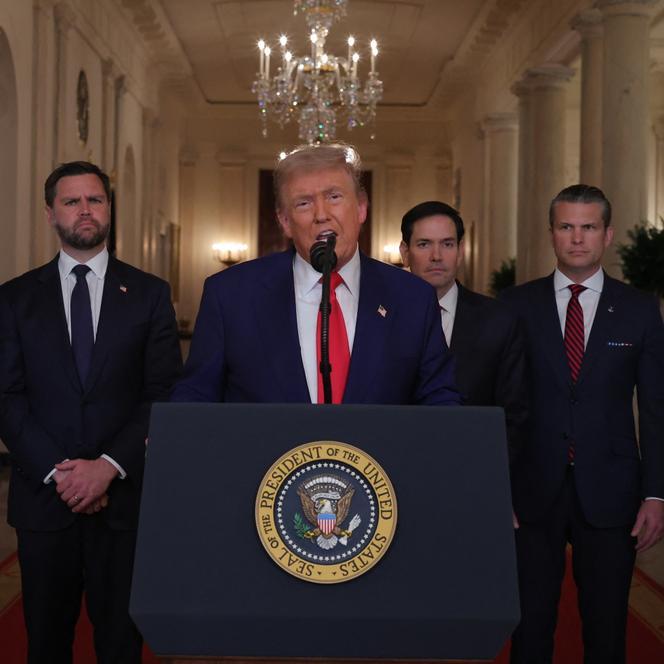How Donald Trump is Reshaping WashingtonŌĆÖs Political Environment
Transforming the Political Terrain in the NationŌĆÖs Capital
Donald TrumpŌĆÖs presence in Washington, both during and after his presidency, has profoundly transformed the political environment, ushering in a new wave of populist conservatism that challenges traditional party norms. His distinctive styleŌĆömarked by unfiltered communication on social media and a combative approachŌĆöhas altered the way politicians interact with constituents and each other. The Republican Party, in particular, has undergone a significant identity shift, with a growing faction embracing TrumpŌĆÖs ideology, creating a rift between establishment Republicans and his loyal base.
Several notable consequences of this shift include:
- Heightened Partisan Deadlock: The increasing ideological divide has led to frequent legislative standstills, making bipartisan cooperation more elusive.
- Judicial Realignment: TrumpŌĆÖs appointment of three Supreme Court justices and numerous federal judges has tilted the judiciary toward a conservative majority expected to influence rulings for decades.
- Election Legitimacy Debates: Persistent challenges to election outcomes have sparked nationwide discussions on voting regulations and electoral integrity reforms.
- Media Ecosystem Shift: His contentious relationship with mainstream media has fueled the rise of alternative news outlets and intensified partisan media consumption.
| Dimension | Before Trump | After Trump |
|---|---|---|
| Republican Party Cohesion | Unified under traditional leadership | Divided with strong Trump-aligned factions |
| Legislative Collaboration | Moderate bipartisan efforts | Frequent partisan stalemates |
| Federal Judiciary | Balanced appointments | Predominantly conservative bench |
| Media Relations | Conventional press engagement | Rise of alternative media and skepticism |
Significant Policy Changes Driven by TrumpŌĆÖs Administration
TrumpŌĆÖs presidency catalyzed sweeping policy reforms that continue to influence federal governance. His administration emphasized deregulation, stringent immigration policies, and a pivot toward economic nationalism. Notably, the U.S. withdrawal from the Paris Climate Accord and the overhaul of trade agreements like NAFTAŌĆörebranded as the USMCAŌĆöhighlighted a shift away from multilateralism toward prioritizing American interests. These policy directions have redefined the countryŌĆÖs domestic and international posture.
Key policy transformations include:
- Immigration Enforcement: Implementation of stricter border security measures and travel restrictions affecting millions.
- Tax Reform: The 2017 Tax Cuts and Jobs Act reduced corporate tax rates aiming to boost economic growth.
- Judicial Appointments: Over 200 federal judges, including three Supreme Court justices, were appointed, reshaping the judiciaryŌĆÖs ideological balance.
| Policy Sector | Pre-Trump Approach | Trump Era Changes |
|---|---|---|
| Climate Action | Active participation in global climate agreements | Exited Paris Agreement, reduced environmental regulations |
| Trade Policy | Emphasis on multilateral trade deals | Focus on renegotiated bilateral agreements |
| Immigration Policy | More lenient enforcement and pathways to citizenship | Stricter border controls and travel bans |
Charting the Republican PartyŌĆÖs Path Forward in a Post-Trump Era
As the GOP moves beyond TrumpŌĆÖs presidency, it faces the complex task of reconciling his lasting influence with the need to broaden its appeal. Party leaders are recalibrating strategies to maintain the loyalty of TrumpŌĆÖs base while reaching out to suburban and moderate voters. This balancing act reflects an ongoing identity struggle within the party, with implications for future electoral success.
Emerging GOP strategies include:
- Focusing on State and Local Elections: Strengthening grassroots support to build a robust foundation.
- Modernizing Digital Campaigning: Leveraging social media tactics inspired by Trump but tailored for wider audiences.
- Promoting Economic Nationalism: Combining protectionist rhetoric with practical policy proposals to attract working-class voters.
- Enhancing Candidate Vetting: Implementing stricter screening to avoid controversies that could alienate voters.
| Strategic Focus | Anticipated Outcome | Implementation Timeline |
|---|---|---|
| Local Election Emphasis | Boosted voter engagement at grassroots level | 2024ŌĆō2026 |
| Digital Campaign Innovation | Expanded national reach with targeted messaging | Immediate and ongoing |
| Economic Nationalism Messaging | Appeal to blue-collar and moderate voters | Midterm election cycles |
| Candidate Screening Improvements | Reduced risk of damaging controversies | Next two election cycles |
Strategies for Engaging with the Evolving Political Climate
In an era marked by rapid political shifts, it is essential for both policymakers and citizens to remain well-informed and adaptable. Consuming a diverse range of news sourcesŌĆöfrom local outlets to specialized political analysis and national mediaŌĆöcan foster a comprehensive understanding of WashingtonŌĆÖs changing dynamics. Encouraging bipartisan dialogue and community involvement through forums and town halls can help bridge divides exacerbated by polarized media narratives.
To effectively navigate this landscape, stakeholders should prioritize the following areas:
| Focus Area | Recommended Actions |
|---|---|
| Legislative Monitoring | Track bills, engage with lawmakers, provide public feedback |
| Media Literacy | Verify information sources, seek balanced perspectives, attend media literacy programs |
| Community Participation | Join local meetings, support grassroots campaigns, expand volunteer efforts |
| Policy Advocacy | Collaborate with advocacy organizations, meet with representatives, utilize social platforms |
Summary of Key Insights
The political fabric of Washington continues to be reshaped by Donald TrumpŌĆÖs enduring influence, affecting party dynamics, policy directions, and public discourse. As these transformations unfold, ongoing analysis and informed engagement remain crucial for understanding their implications on American governance. Houston Public Media remains committed to delivering in-depth coverage to keep audiences informed about these pivotal developments.




